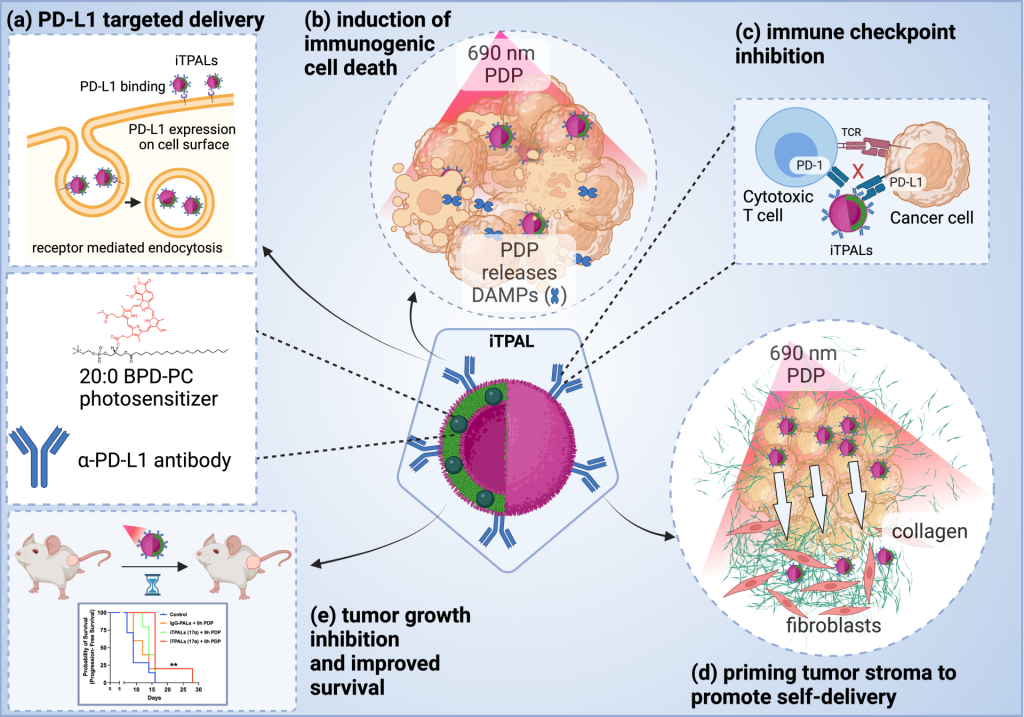
(Bhandari et al., Adv. Healthcare Mater., 2024)
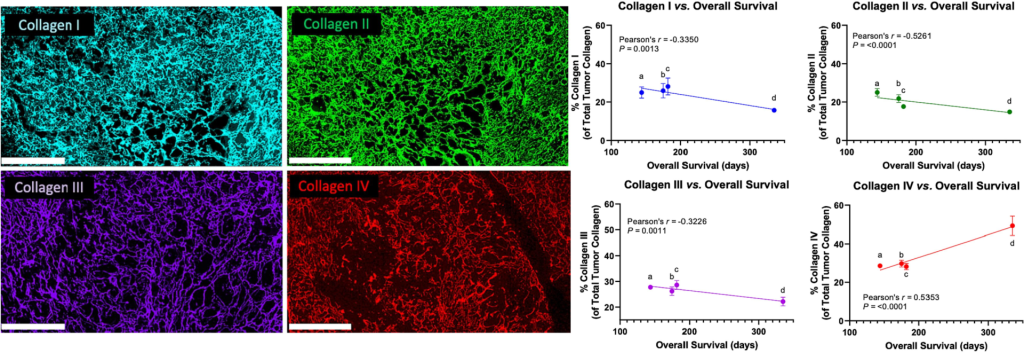
Remediating desmoplasia is correlated with improved survival outcomes in mice bearing pancreatic cancer. The relative tumor content of collagen I, II and III was inversely correlated with overall survival while, surprisingly, the relative tumor content of collagen IV was directly correlated with overall survival.
(Obaid et al., Journal of Photochemistry and Photobiology, 2023)
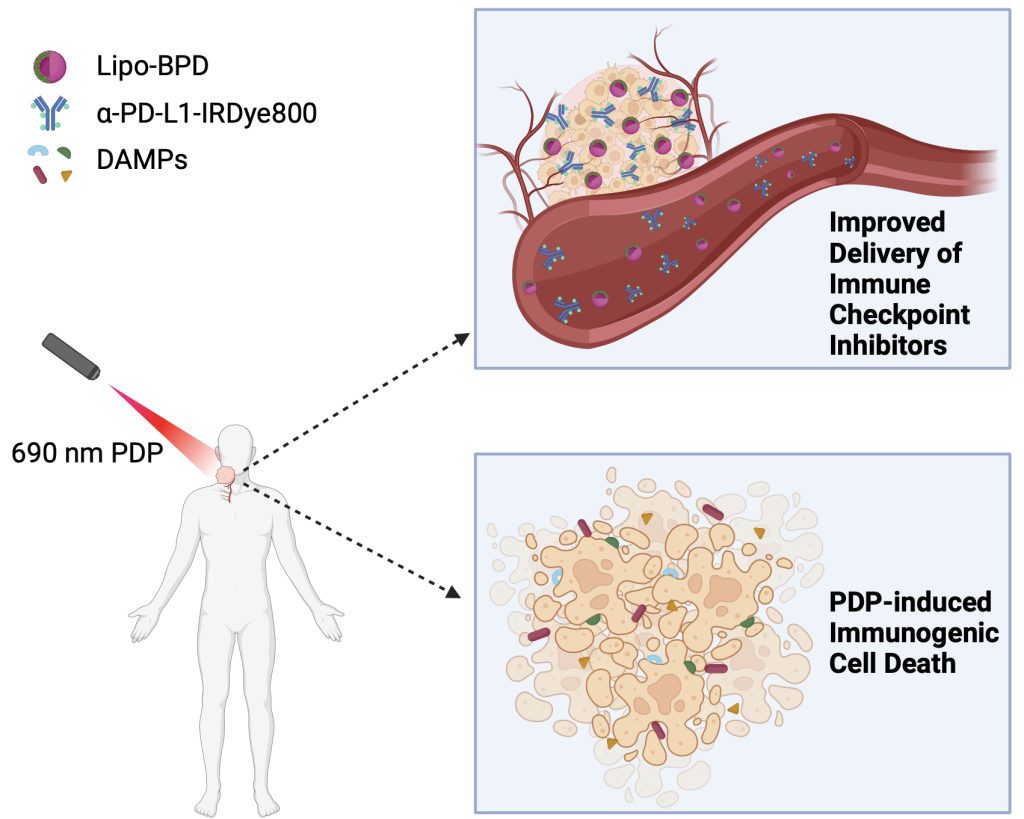
Photodynamic Priming induces immunogenic cell death by releasing Damage Associated Molecular Patterns (DAMPs) and improves the bulk delivery of ⍺-PD-L1 antibodies in head and neck tumors.
(Bhandari et al., Photochemistry and Photobiology, 2023)
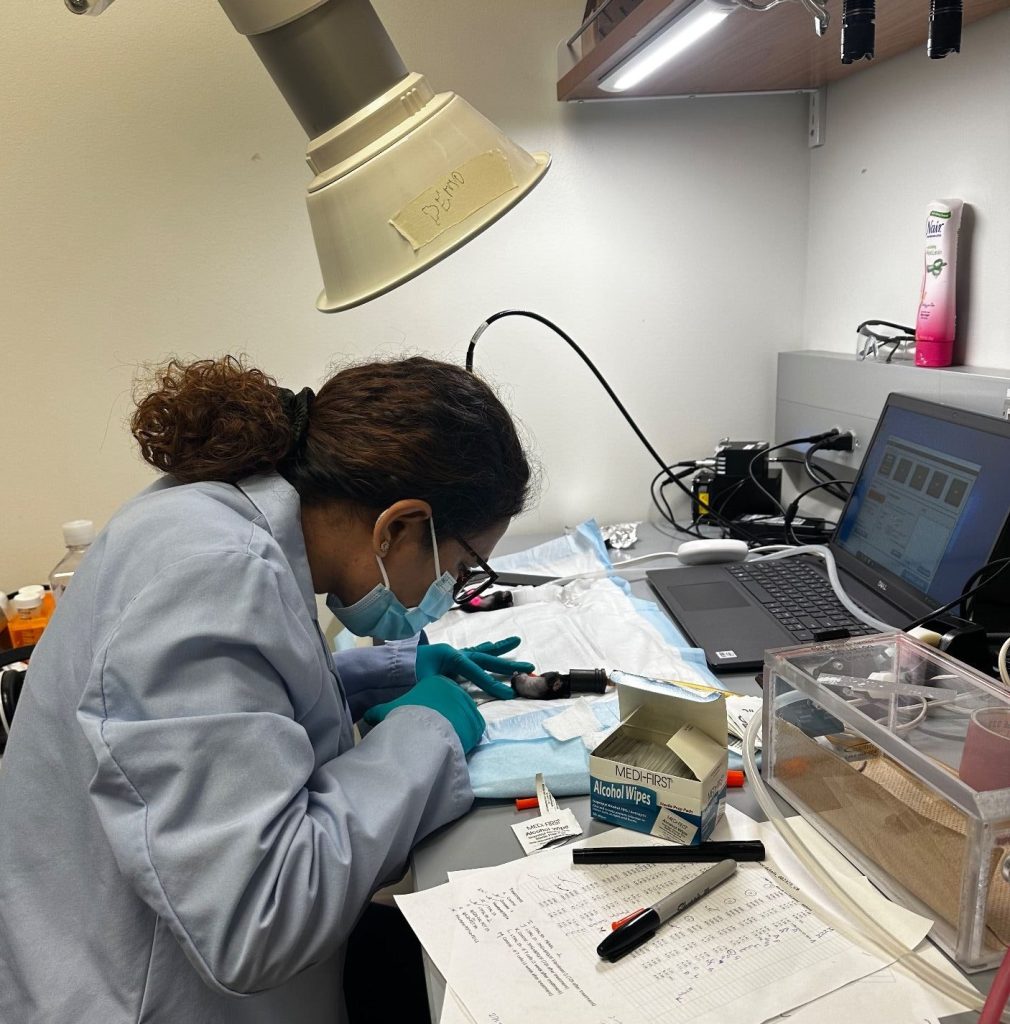
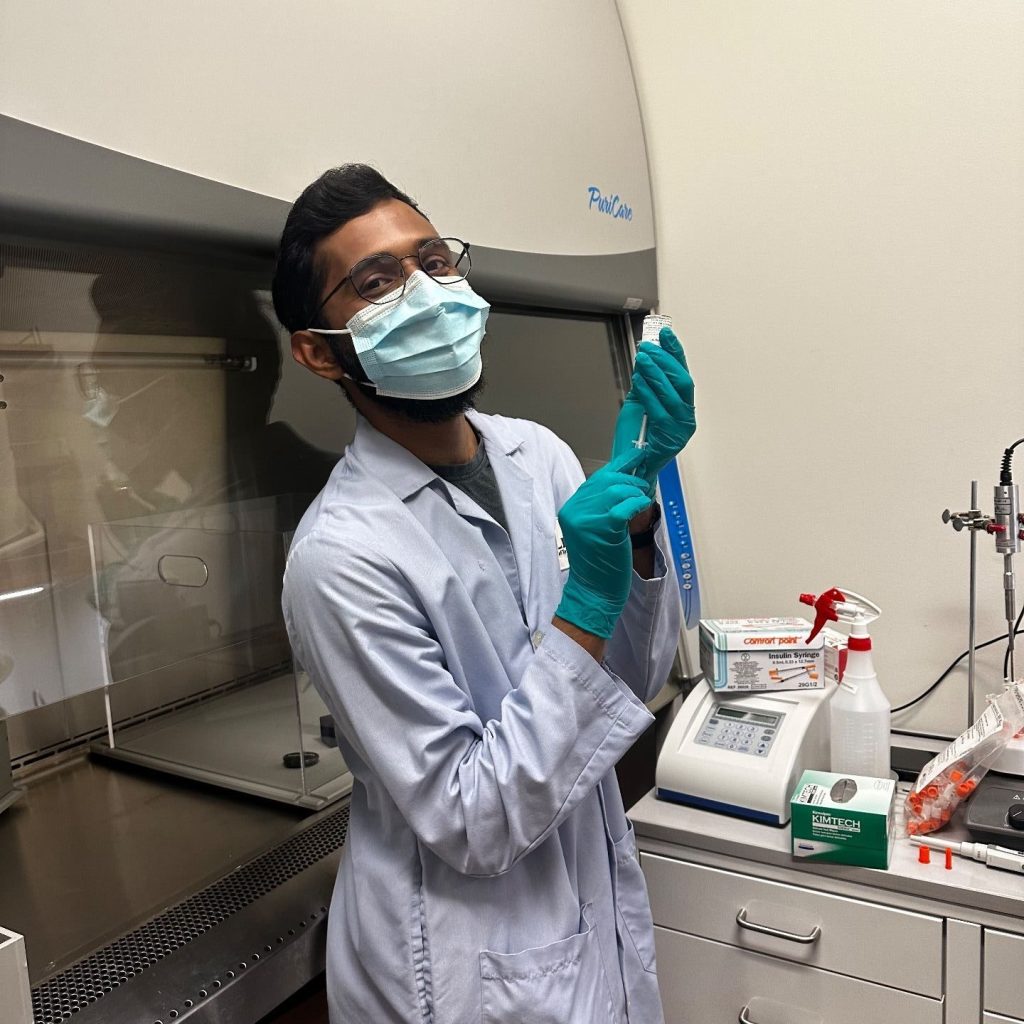
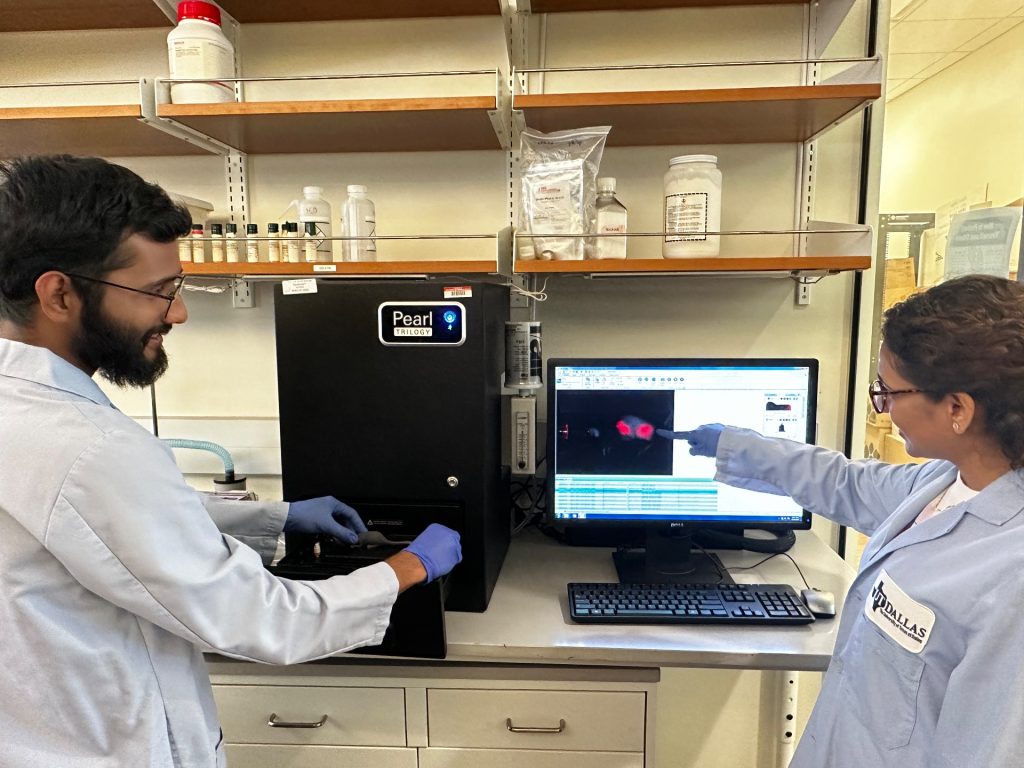
PhD students Chanda and Nimit performing in vivo studies on mice bearing pancreatic tumors. In this study, a novel tumor-targeting light activable drug was administered intravenously in mice, activated using 690 nm light and imaged for its biodistribution using a Pearl Trilogy.
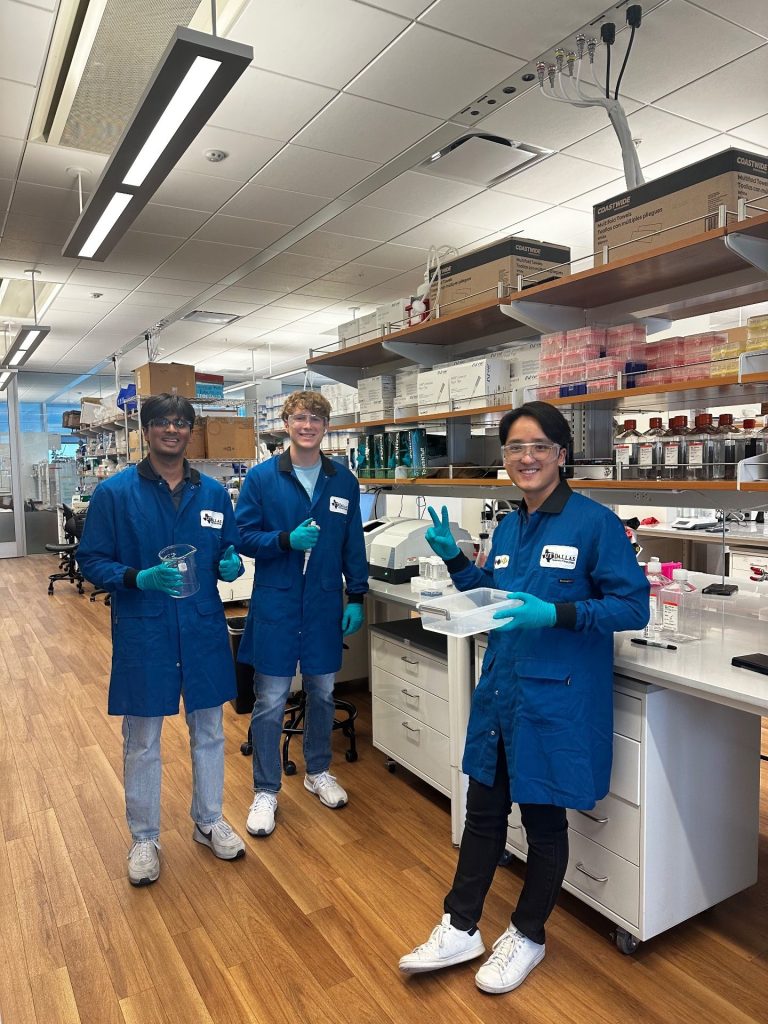
Our students Sid, Micah and Austin very happy at work!
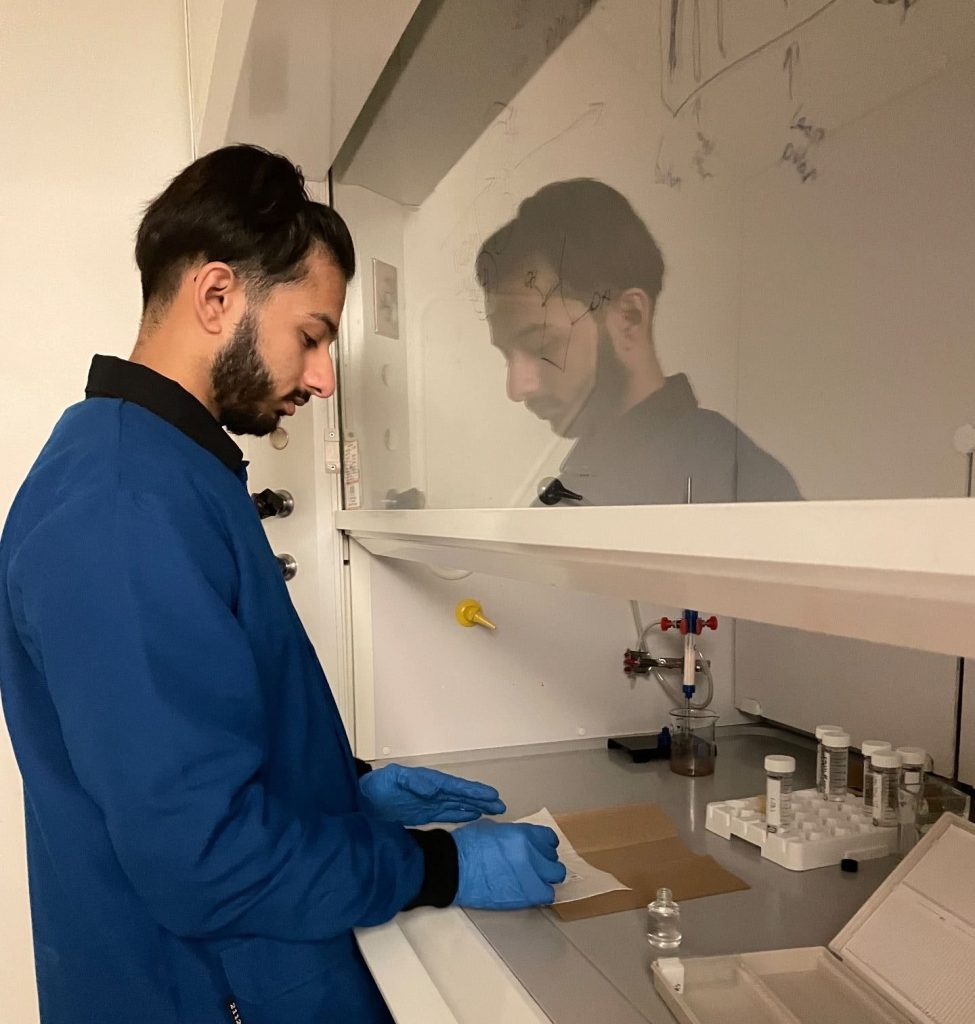
Our undergraduate student Azophi very focused on performing histological studies on tumor tissues!
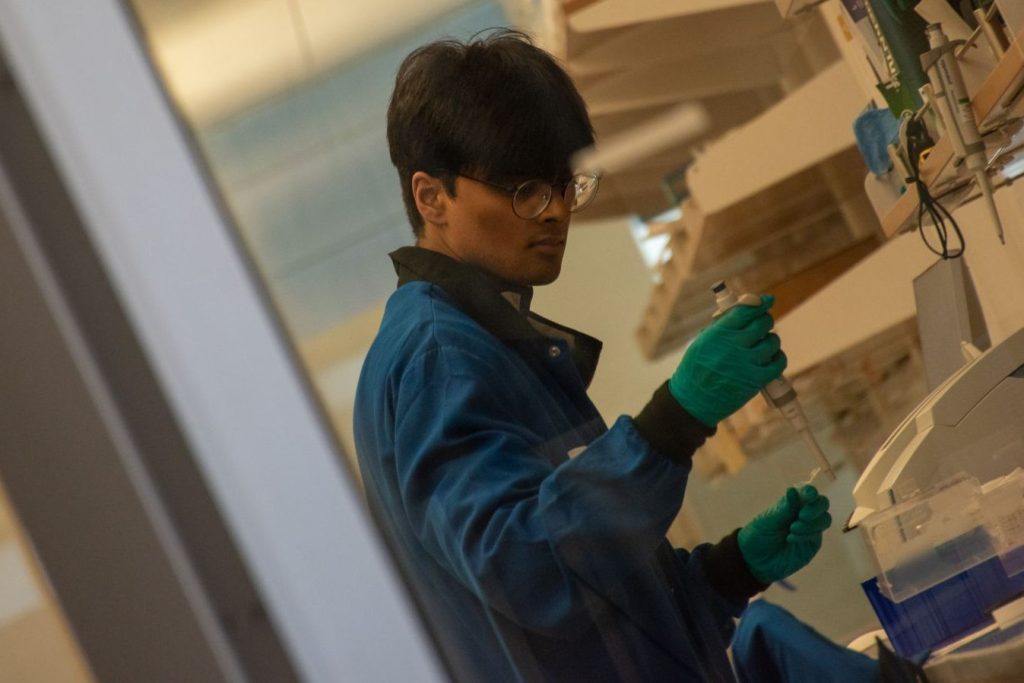
Our undergrad student Sid hard at work performing longitudinal nanoconstruct stability testing!
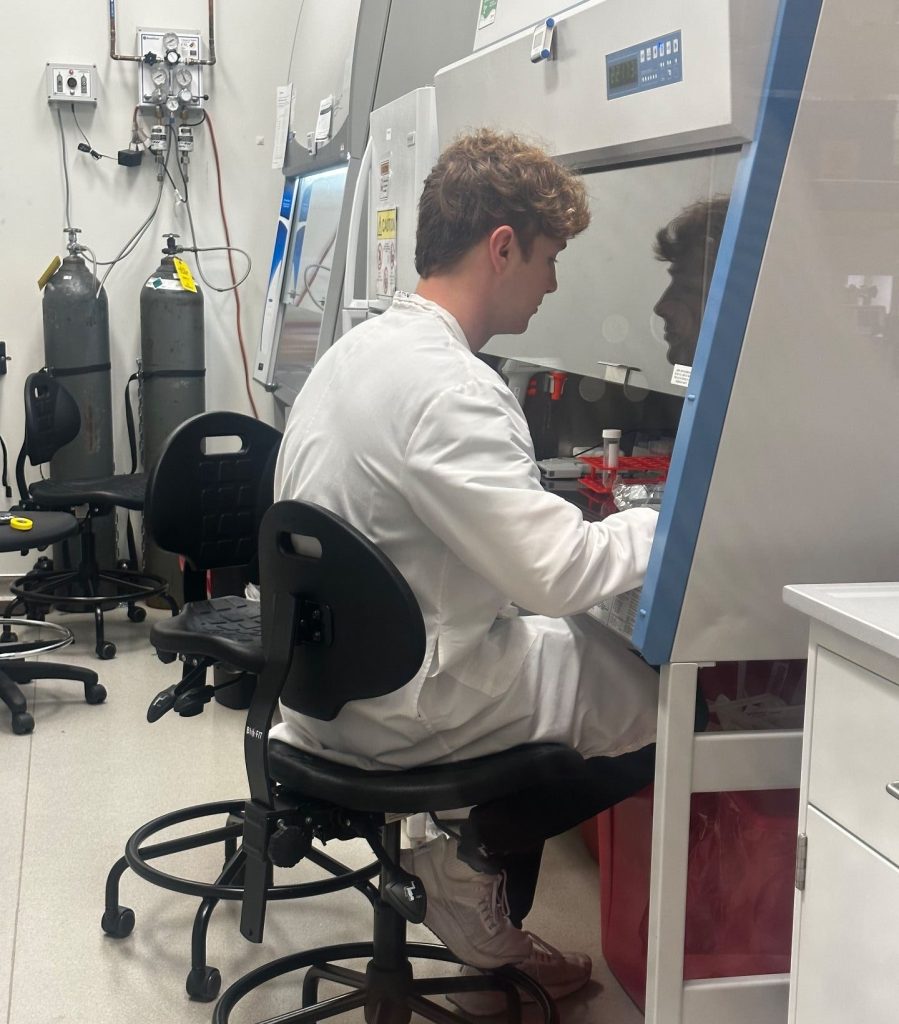
Our newest undergraduate student Micah all set to perform a cell viability assay on head and neck cancer cells!